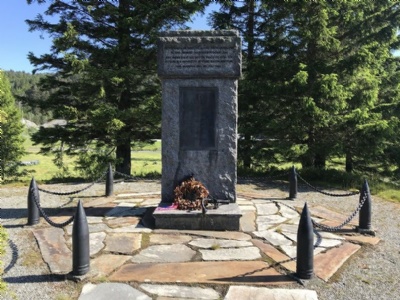Ulven
In June 1940, the German Security Police (SIPO) established a Polizeihäftligslager outside a village called Ulven about thirty kilometres south of Bergen. The camp had previously belonged to the Norwegian army. Ulven was the first camp established by the Germans on Norwegian territory to imprison political opponents, Jews, resistance fighters and others who, according to the germans, constituted a real or unreal threat to the Germans. In the summer of 1943 the German army took over the camp and the prisoners were moved to the new camp Espeland east of Bergen. On July 30, 1943, seven Norwegian crewmen from a captured torpedo were executed at the camp.
Current status: Preserved with monument (2019).
Location: 60°11'57.74" N 05°25'16.91" E
Get there: Car.
Follow up in books: Kogon, Eugen: The Theory and Practice of Hell: The German Concentration Camps and the System Behind Them (2006).


In 2019, Ulven was a military restricted area and the monument stands on a small hill outside the area and is dedicated to the seven torpedo boat crewmen who were executed.